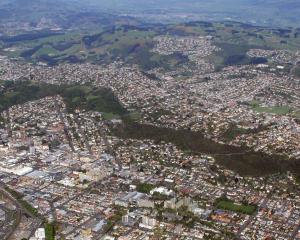Dan Bloom explains how Dunedin author Philip Temple's new ''cli-fi'' novel has joined a global trend.
When well-known author Philip Temple published his new novel MiSTORY in New Zealand recently, unbeknown to him and his readers he was linking his book up with an emerging global literary genre dubbed ''cli-fi'' (for ''climate fiction'').
While most New Zealanders may not have heard of the term, it has been the subject of numerous newspaper and internet articles, including in The Conversation, an academic website based in Australia, and in The Guardian newspaper in Britain.
Google ''cli-fi'' and more than 500 news links will appear on your screen.
See the ''cli-fi'' page at Wikipedia and cruise the news links there.
Everyone on the planet is now aware of climate change and global warming but not everyone agrees on the causes and the science.
Scientists argue over the issues, and politicians banter back and forth with colleagues across the aisles - and with voters.
Enter cli-fi. It's a literary genre meant to stir the pot, raise awareness, assert a certain moral imperative to speak up for what ails our Earth.
And this is what Temple has done in his new novel.
Temple's book is set in the near future, about 30 years from now, and he wrote it for two reasons: to tell a good, entertaining story and also to issue a wake-up call about climate issues.
Generation Zero, the group of young people fighting for a carbon-free future, has said of his book: ''MiStory throws readers 30 years into the future in brutal and realistic fashion. New Zealand is racked by the worst effects of climate change, and engaged in constant conflict. In the novel, our very fabric is at risk of tearing apart. The book is insightful, it's an important piece of well-researched fiction and it hits close to home.''
That's the key: it hits close to home.
Climate change will impact the world in every corner of the globe.
This country was once dubbed ''lifeboat New Zealand'' by British scientist James Lovelock when he was talking about how the island nation could very well become a ''lifeboat'' for climate refugees around the world trying to find refuge in some distant future.
With cli-fi novels and movies now becoming a trend in English-speaking countries, from Britain to New Zealand, from Canada to Australia, Temple's powerful novel packs a punch. It's not science.
It's not a political tract. It's storytelling at its best.
At the age of 75, Temple, who migrated to New Zealand as a teenager and made a life and career here, has made his mark in a new global literary genre that is hot now. Can cli-fi novels change the world? Maybe not, but they can ring the alarm bell.
Popular culture can help us reimagine environments and national policies in a time of rapid ecological change.
Climate change issues, pro and con, are just too important to ignore in the national discussions taking place in political capitals around the world now.
Some say the earth is on fire. Others say there's nothing to worry about.
Philip Temple has turned the narrative into a cli-fi novel, and in doing so has put New Zealand on the world literary map - in a novel way.
-Dan Bloom is an American freelance writer based in Taiwan. Philip Temple and his novel featured in the ODT's Weekend Magazine last Saturday.












